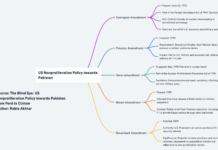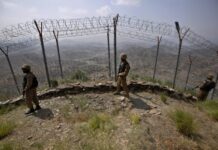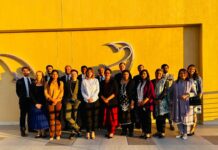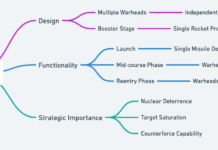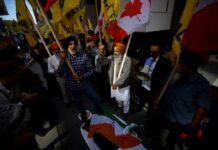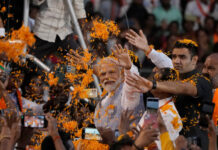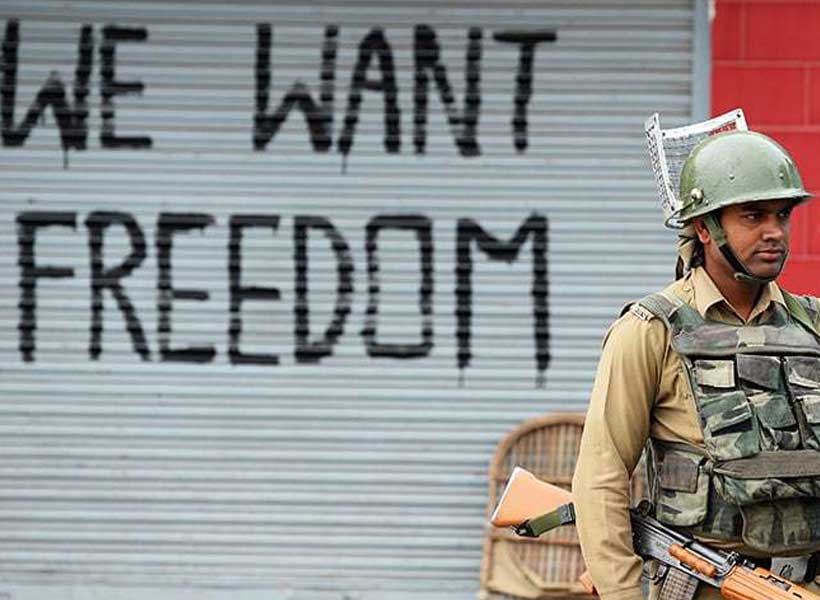Syed Ali Zia Jaffery
An impassioned, historic speech by Pakistan’ premier Imran Khan at the United Nations General Assembly(UNGA) in 2019, was a hope-propellant for the incarcerated Kashmiris of IIOJK, who were being , a month ahead of the said event, brutalized, stripped of their autonomy, and locked-down by the RSS-BJP government under India’s top man Narendra Modi . Unprecedented as it may sound, PM Khan was able to hold 72 interactions in 5 days, with a view to jostling the world into saving the Kashmiris, and the region from a fascist regime ruling India. Not only was that blitz instrumental in pushing former U.S. President Donald Trump to raise concerns and offer mediation on the simmering situation in Kashmir, but it also enabled news outlets to resonate with Khan, who identified similarities between Modi’s India and Nazi Germany. The corollary was that India was being flayed left, right, and center. The Kashmir issue was back on our TV screens after a hiatus of two decades.
However, soon, the momentum was lost to the cesspool that is Pakistani politics. The media, that had already started spreading the “Kashmir has been sold” narrative, quickly shifted focus towards elements that wanted to dislodge the government of the day in Pakistan. The so-called Azadi March and the 24/7 coverage it was given by the media impeded Pakistan’s support to Kashmiris’ march towards their ‘rightful’ Azadi. Kashmir went off the radar, once again; the government, resultantly, got distracted, letting India off the hook. What else could an adversary ask for? Though Pakistani officials have done an excellent job in effectively taking up the Kashmir cause, domestic minefields, coupled with an unfriendly media, have hurt the country’s capacity to mount a whole-of-nation approach to deal with an irrational occupier in India. In a webinar organized by the Center for Security, Strategy and Policy Research( CSSPR, University of Lahore, entitled “The Vaccination of Freedom: Kashmir in the Age of Double Detention” President Azad Jammu and Kashmir, Masood Khan, lamented that Pakistan did not capitalize on the tempo that was generated post-August 5. Further, he said the onus of providing leadership lies on the politicians, who must transcend their political differences. President Khan, who is a leading voice on Kashmir, is on the money in his assessment. The issue of Kashmir is a national one, and, hence, must not be left at the mercy of partisanship. The Opposition’s support to the government on a national issue like Kashmir should not be conditioned on the latter stopping the process of accountability, an attitude that has, unfortunately, reduced the prospect of developing a consensus on how to deal with an intransigent India.
What all this has done is that it has given India a leeway to vigorously pursue its occupation agenda in Kashmir. In the very webinar, Chairman Board of Governors, University of Lahore, Awais Raoof, urged the government, and rightly so, to do more. While noting that nothing has changed for the hapless Kashmiris, Mr. Raoof said: “Kashmiris are us, and we are them.”
Apart from Pakistan’s fight being damaged by petty politics, the media have, through a combination of a lackadaisical approach, a proclivity to discredit the government, and unprofessionalism, not helped the cause one bit. At a time when the media, especially strands of social media, are becoming critical to shaping narratives, fake, distorted news are a bane for Pakistan and Kashmir. Expressing his disappointment on Pakistan’s inability to challenge India’s narrative on the Simla Agreement, ace Pakistani intellectual, Mr. Javed Jabbar, stressed that Pakistan has to up its game in the realm of public diplomacy. He cogently argued that, Pakistan has to come up with a credible, globally-recognized media outlet, one that does not appear to be a veritable propaganda arm of the Pakistani state. The experienced pro could not have put it in better words. Pakistan’s strategic communications’ landscape is a weak one. As a matter of fact, there isn’t, as of now, anything strategic about Pakistan’s strategic communications’ drive. The enemy’s propaganda should not be countered with that of our own. If anything , facts, despite favoring Pakistan, can fall on deaf ears, if their dissemination is clouded by shades of propaganda. This point is not insignificant but lies at the heart of how Pakistan can rebrand itself as a harbinger of peace, rather than a hotbed of extremism. The government must, therefore, strategically invest in narrative-building methods. Mr. Jabbar reminded the government as to how generously the people of Pakistan respond when someone takes a pro-Pakistan initiative. Who would know about the philanthropic zest of Pakistanis better than PM Khan? A government, no matter how efficient, cannot alone carry the burden of putting our word out, if the media and media personalities take a different course. Thus, Pakistan having its own voice is the need of hour. Absent strategic investments aimed at exploiting the changing media environment, Pakistan’s traditional and non-traditional diplomacy will be dealt a severe blow.
Recently, the absence of a single, credible communicator has hurt Pakistan. The resuscitation of the 2003 Ceasefire Agreement, a good step, has been conflated with Pakistan’s de facto acceptance of the status quo. Similarly, Pakistan’s ‘bury the past’ refrain has been twisted and wrongly deemed of as Pakistan’s disinterest in continuing its support to the Kashmiris. Giving conflicting signals to the Kashmiris and to the world is not an option for Pakistan. It will greatly help India’s bid to drive a wedge between the people of Kashmir and the State of Pakistan. In her remarks in the webinar, Director, CSSPR, Dr. Rabia Akhtar, raised this point, too while reiterating the need for making the Kashmiris an integral part of the conflict-resolution process. Agreeing with the import of rejigging our global communications, Dr. Akhtar said that time is of the essence, and, hence, Pakistan has to act and act fast. This, as President Khan also said, is critical to establishing and bolstering contacts with the global citizenry so as to take Kashmiris’ voices to the streets of many a country.
On the diplomatic front, Pakistan has to first understand that the nature of this decades-long conflict has changed post-August 5, with India brazenly pushing ahead with its “project land-grab.” Pakistan, thus, has to take a set of actions. For starters, as rightly pointed out by one of the most renowned authors on the conflict, Victoria Schofield, lucidly communicate as to what the actual dispute is. Contending that the whole region is disputed, Ms. Schofield called for bringing in more clarity so as to coordinate with the international community. Yes, Pakistan has to go back to 1947, to, once and for all, reject India’s narrative on the pathan invasion of Kashmir, by stressing that, it was an indigenous movement started by the people of what later became known as Azad Kashmir, who were fueled with a desire to join the newly-created Muslim country. Ms. Schofield was quick to point out that the highly-touted Simla Agreement does not preclude third-party mediation. Islamabad has to change the fundamental debate around the 1972 Agreement, with a view to garnering third-party attention to the conflict. This is all the more important given that, India, with its August 5 gambit, has decided to unilaterally take matters in its own hands. Ms. Schofield was truthfully poignant in saying that, absent a resolution of the conflict, the people of Kashmir will continue to suffer.
With all this in mind, Pakistan has to, in addition to accentuating strategic communications, engage with the powers that be. President Khan, with decades of diplomatic experience, rightly said that the key to resolving Kashmir is not in New York but in Washington. Pakistan, thus, has to ensure its continued parleys with the United States on the Kashmir issue, not to mention the need for recalibrating ties with other members of the P5. For that to happen, Pakistan has to reform itself from within. Only a cohesive, strong, and confident Pakistan can engender enough clout to catapult dithering and indifferent powers into action. There are signs that, the journey towards that end has begun. That said, an inconsistent and non-committal policy framework will be but a recipe for disaster, especially when the country is faced with an irredentist enemy that smells blood.
Syed Ali Zia Jaffery is Associate Editor, Pakistan Politico.



